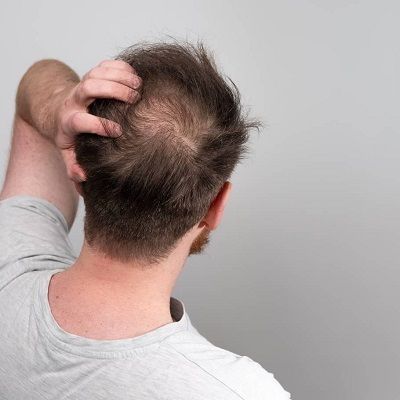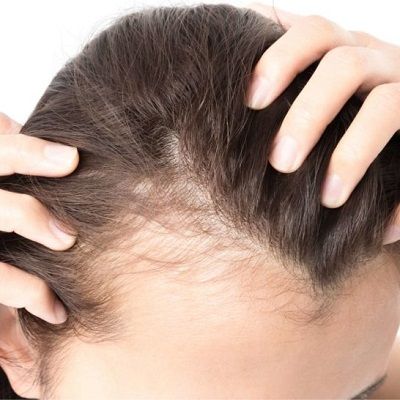Hair loss is a concern that affects many individuals worldwide, often leading to emotional distress and diminished self-esteem. Interestingly, emerging research highlights a potential connection between hair loss and allergies. Understanding this link is essential for those seeking effective treatments. In this article, we will explore the relationship between hair loss and allergies and discuss the Best Hair Loss Treatment in Oman for those impacted.

Understanding Hair Loss
Hair loss, medically known as alopecia, can result from various factors, including genetics, hormonal changes, nutritional deficiencies, and autoimmune disorders. Among these, allergies may play a significant role.
Types of Hair Loss
There are several types of hair loss, including:
- Androgenetic Alopecia: Often referred to as male or female pattern baldness, this hereditary condition is characterized by thinning hair.
- Alopecia Areata: An autoimmune disorder where the immune system attacks hair follicles, leading to sudden hair loss.
- Telogen Effluvium: A temporary condition triggered by stress, hormonal changes, or illness that pushes hair into the resting phase, causing shedding.
- Traction Alopecia: Hair loss caused by tension on the hair shafts, often due to tight hairstyles.
Understanding the type of hair loss one is experiencing is crucial for identifying the right treatment approach.
The Role of Allergies in Hair Loss
Allergies, whether food-related or environmental, can manifest in various ways, including skin reactions, respiratory issues, and even hair loss. The connection between hair loss and allergies primarily lies in inflammation and immune response.
Inflammation and Hair Follicles
When the body encounters an allergen, it triggers an immune response that can lead to inflammation. This inflammation can affect hair follicles, disrupting their normal functioning and leading to hair thinning or shedding.
Common Allergens
- Pollen: Seasonal allergies can contribute to inflammation and stress, potentially leading to hair loss.
- Dust Mites: These common household allergens can trigger allergic reactions that may affect the scalp and hair health.
- Food Allergies: Allergies to certain foods can cause systemic inflammation, impacting hair growth cycles.
Stress and Hair Loss
The psychological impact of allergies, including stress and anxiety related to allergic reactions, can also contribute to hair loss. Stress activates the body's fight-or-flight response, which can push hair follicles into the telogen (resting) phase, resulting in increased shedding.
Identifying Allergies Related to Hair Loss
If you suspect that allergies may be contributing to your hair loss, consider the following steps:
Consult a Dermatologist
A dermatologist can conduct a thorough evaluation, including a scalp examination and a review of your medical history, to determine if allergies are a factor in your hair loss.
Allergy Testing
Allergy testing can help identify specific allergens that may be affecting your scalp and hair health. Skin prick tests or blood tests can reveal sensitivities to common allergens.
Keeping a Journal
Maintaining a journal to track your hair loss alongside any allergy symptoms can help identify potential triggers. Note any changes in your environment, diet, or health that coincide with hair shedding.
Best Hair Loss Treatment in Oman
For those experiencing hair loss linked to allergies, seeking effective treatment is crucial. In Oman, several hair loss treatment options are available:
Topical Treatments
Topical treatments such as minoxidil are widely used to stimulate hair growth. These treatments can be effective for various types of hair loss and are often recommended by dermatologists.
Nutritional Supplements
A well-balanced diet rich in vitamins and minerals is vital for healthy hair. Supplements containing biotin, zinc, and vitamins A, C, and E can support hair growth and overall scalp health.
PRP Therapy
Platelet-rich plasma (PRP) therapy involves drawing a small amount of blood from the patient, processing it to concentrate the platelets, and injecting it into the scalp. PRP has shown promising results in promoting hair growth, especially in individuals with alopecia areata.
Hair Transplant Surgery
For those with significant hair loss, hair transplant surgery may be a viable option. This surgical procedure involves relocating hair follicles from donor areas to thinning or bald areas of the scalp.
Preventing Hair Loss Related to Allergies
Taking proactive measures can help prevent hair loss associated with allergies. Here are some tips:
Maintain Scalp Health
Keeping the scalp clean and free of allergens can help maintain healthy hair follicles. Regularly wash your hair and scalp using gentle, hypoallergenic products.
Manage Allergies
Working with a healthcare professional to manage allergies through medications, lifestyle changes, or allergen avoidance can minimize inflammation and its impact on hair health.
Stress Management Techniques
Engaging in stress-reducing activities such as yoga, meditation, or regular exercise can help mitigate the psychological effects of allergies, which may, in turn, reduce hair loss.
Conclusion
The link between hair loss and allergies is a complex relationship that involves inflammation, immune response, and stress. By understanding this connection, individuals can take steps to address their hair loss effectively. For those in Oman seeking solutions, various treatment options are available, including topical treatments, nutritional supplements, and advanced therapies like PRP. Consulting with a healthcare professional is essential for determining the most suitable approach based on individual needs and circumstances. By proactively managing allergies and exploring treatment options, it is possible to reclaim hair health and restore confidence.
